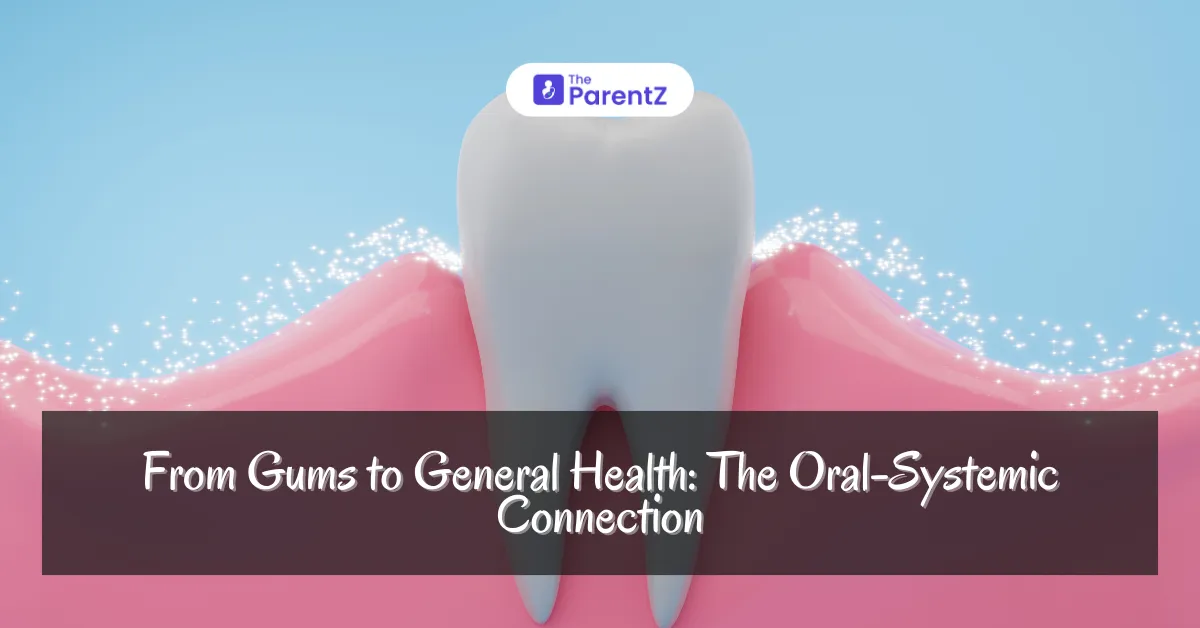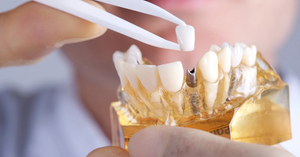Oral health is often viewed in isolation, limited to teeth and gums. However, research underscores that the mouth is the gateway to overall health, with oral diseases like periodontitis influencing systemic conditions. Understanding the oral-systemic connection is key to promoting holistic well-being.
The Science Behind the Oral-Systemic Connection
1. Periodontal Disease and Inflammation
Periodontal disease, or gum disease, is caused by bacterial infections that trigger chronic inflammation. The inflammatory mediators released locally in the gums can enter the bloodstream, spreading inflammation to other organs.
2. The Role of Oral Microbiome
The oral cavity is home to over 700 bacterial species. While beneficial bacteria maintain oral health, harmful ones like Porphyromonas gingivalis and Treponema denticola can contribute to systemic diseases when they escape into the bloodstream.
Systemic Conditions Linked to Oral Health
1. Cardiovascular Diseases
• The Connection: Periodontal pathogens promote the development of atherosclerotic plaques, increasing the risk of heart attack and stroke.
• Key Studies: Research has found P. gingivalis DNA in atherosclerotic plaques, linking oral bacteria to heart disease.
2. Diabetes Mellitus
• The Connection: Gum disease exacerbates insulin resistance and inflammation, making blood sugar control difficult.
• Bidirectional Link: Uncontrolled diabetes increases the risk of periodontal disease, creating a vicious cycle.
3. Adverse Pregnancy Outcomes
• The Connection: Pregnant women with periodontal disease have a higher risk of preterm birth, low birth weight, and preeclampsia.
• Mechanism: Inflammatory markers and oral pathogens can affect the uterine environment.
4. Respiratory Conditions
• The Connection: Oral bacteria aspirated into the lungs can cause or worsen pneumonia and chronic obstructive pulmonary disease (COPD).
5. Alzheimer’s Disease
• The Connection: Studies have found P. gingivalis and its toxins in the brains of Alzheimer’s patients, suggesting a link between chronic gum disease and neurodegeneration.
6. Rheumatoid Arthritis (RA)
• The Connection: Chronic inflammation in the gums may exacerbate RA, as both conditions share common inflammatory pathways.
Key Oral Bacteria and Their Impact
1. Beneficial Bacteria:
• Streptococcus salivarius: Protects against harmful bacteria by producing antimicrobial peptides.
• Veillonella spp.: Prevents acidic buildup, reducing cavity risk.
2. Harmful Bacteria:
• Porphyromonas gingivalis: Associated with periodontitis and systemic inflammation.
• Treponema denticola: Linked to periodontal disease and systemic infections.
• Fusobacterium nucleatum: Implicated in adverse pregnancy outcomes and certain cancers.
Practical Tips for Maintaining Oral and Systemic Health
1. Prioritize Oral Hygiene
• Brush twice daily with fluoride toothpaste.
• Floss daily to remove interdental plaque.
• Use antimicrobial mouthwashes to reduce bacterial load.
2. Regular Dental Check-Ups
• Schedule visits every six months for early detection and treatment of oral issues.
3. Manage Systemic Conditions
• Keep diabetes, hypertension, and other chronic conditions under control to reduce oral health complications.
4. Maintain a Healthy Diet
• Include foods rich in antioxidants and omega-3 fatty acids to combat inflammation.
• Limit sugar intake to reduce the risk of cavities and gum disease.
5. Quit Smoking
• Smoking worsens gum disease and increases the risk of oral and systemic cancers.
6. Stay Hydrated
• Adequate hydration ensures optimal saliva flow, which helps cleanse the mouth and maintain oral pH.
Personal Perspective: A Dentist’s Insight
As a dentist, I’ve witnessed the transformative effects of improving oral health on overall well-being. One of my patients, who struggled with uncontrolled diabetes and severe gum disease, saw remarkable improvement in her blood sugar levels after treating her periodontitis. Such cases reinforce the importance of educating patients about the oral-systemic connection.
A Call to Action: Think Beyond the Mouth
Oral health is more than just a dazzling smile; it’s a cornerstone of systemic well-being. By prioritizing oral hygiene and regular dental care, you can prevent or manage systemic diseases. Remember, a healthy mouth is the first step toward a healthier body.
References
• Preshaw PM, et al. “Periodontitis and Systemic Inflammation: Role of the Oral Microbiome.” PubMed Central.
• Tonetti MS, et al. “Impact of Periodontal Therapy on Systemic Health.” PubMed Central.
• Dominy SS, et al. “Porphyromonas Gingivalis in Alzheimer’s Disease Brains.” PubMed Central.








Be the first one to comment on this story.